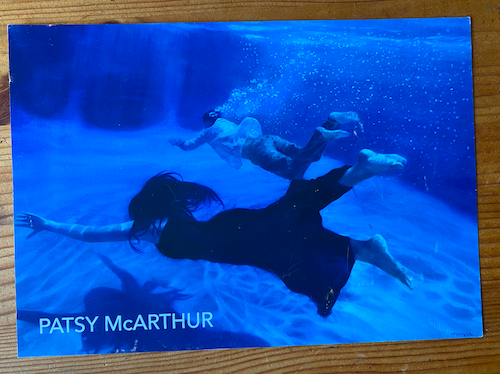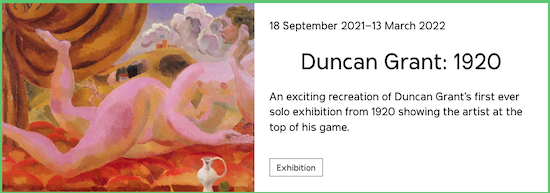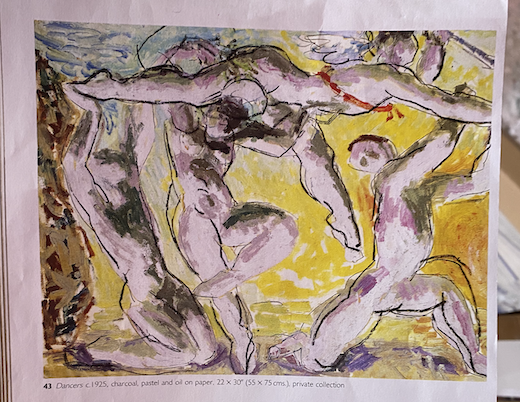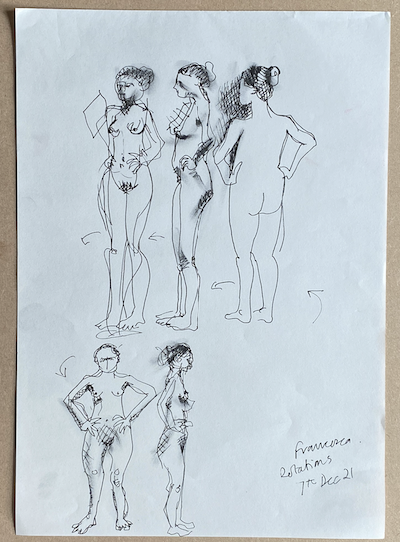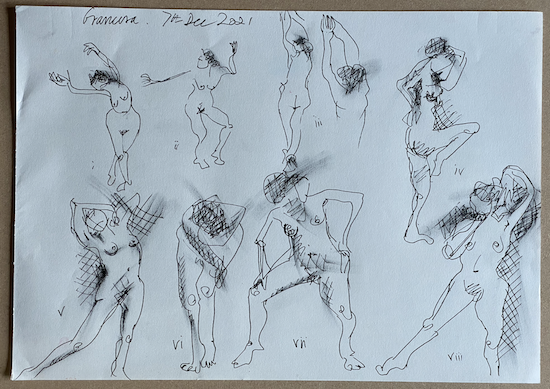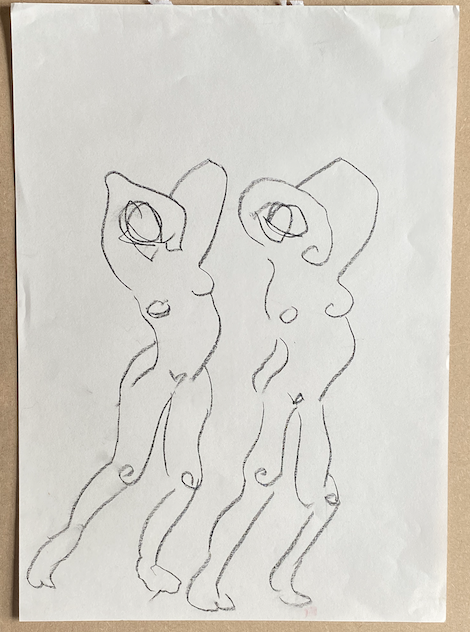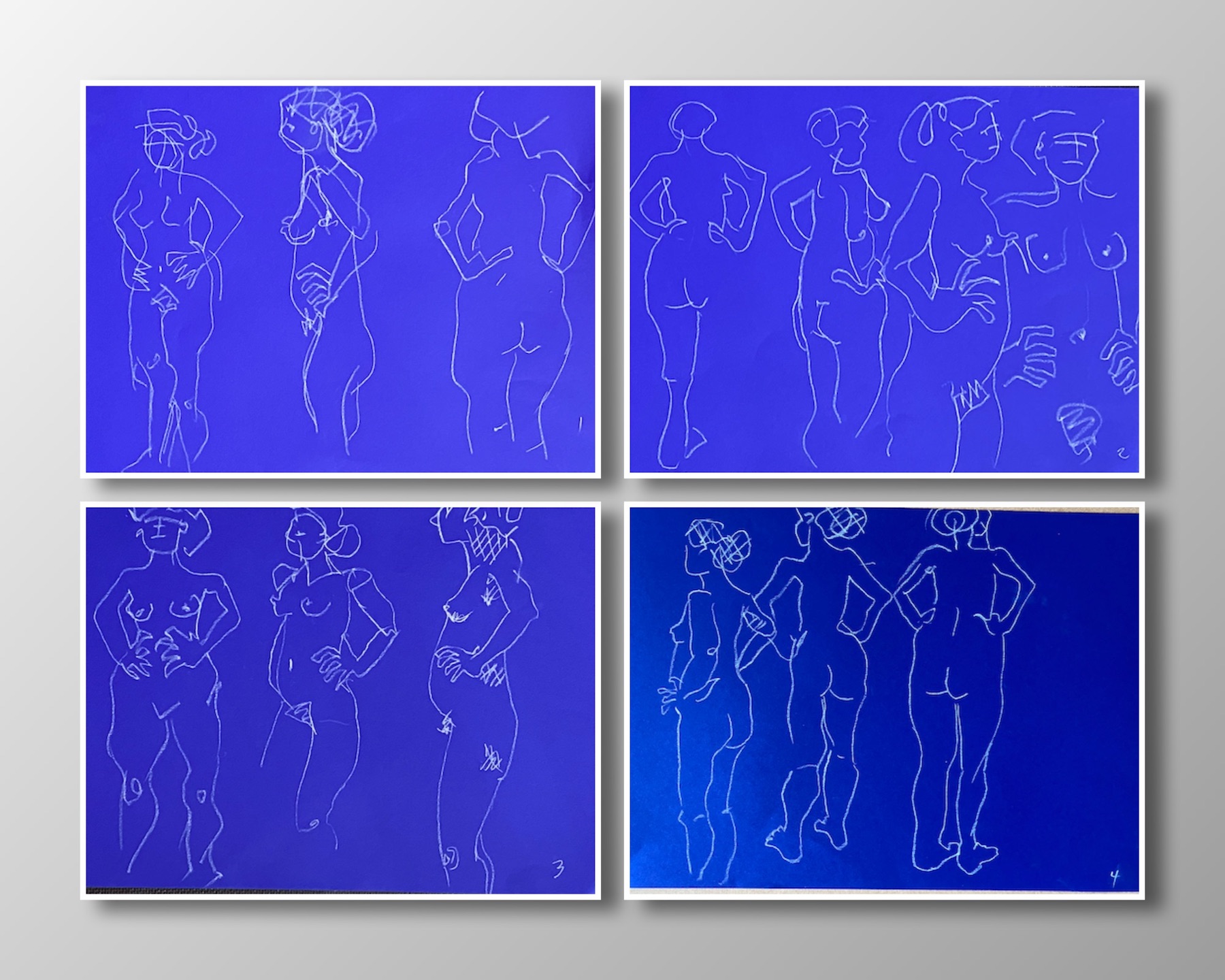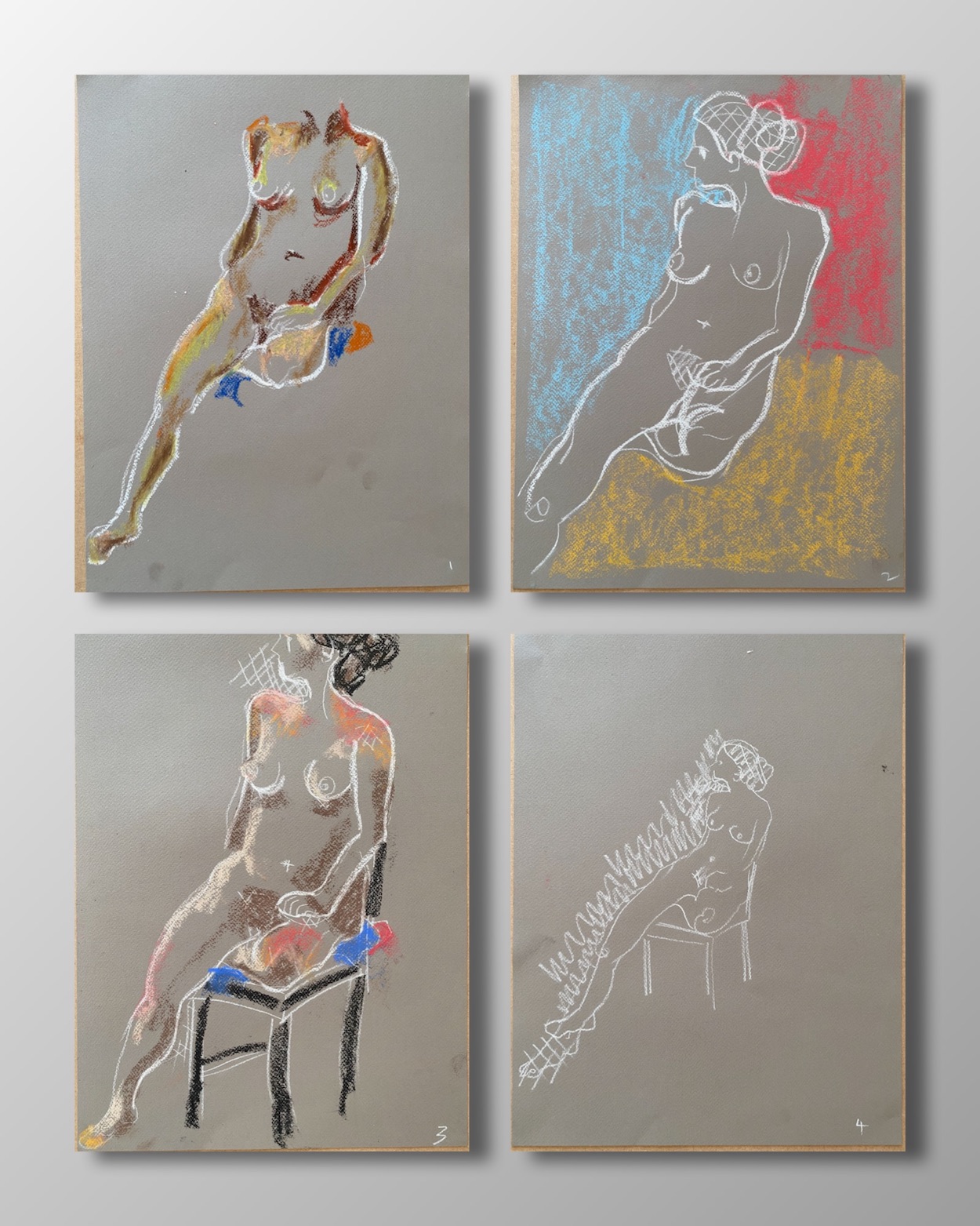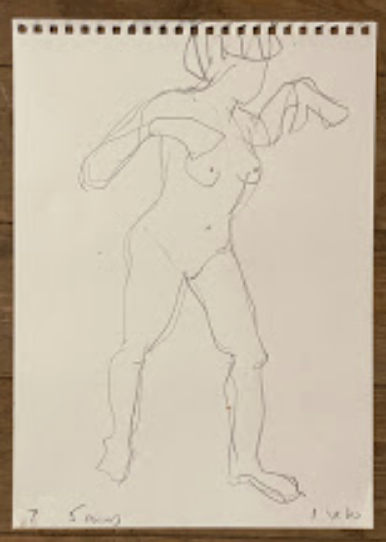I started this blog in 2010 while studying at the Open University. Since then, it’s had over several million views—more than I ever expected when I began typing into the void. Back then, online learning was PDFs, forums, and long-lost Moodle threads.
In 2025, it’s something entirely different.
I now talk to an AI every day. Not out of laziness, but because it sharpens me. I use it as my co-coach at the swimming pool. It helps me structure swim sets for regional-level athletes, rethink stroke mechanics on the fly, and prepare performance reviews. I use it in meetings to gain insight or structure an argument.
I also talk to it about chickpeas.
And printers and new TVs.
And sleep problems.
And World War One.
It’s helped me structure a 20k-word novella, develop a WWI-era romance saga, interpret dreams using Jungian archetypes, prep for my next art exhibition (Bip-Art, Brighton Open Houses), and get a handle on my ADHD tendencies.
The AI doesn’t have a face. It doesn’t need one. I think it is Minerva from Heinlein’s Time Enough for Love, without the ego.
There’s one caveat: when your brain is this hungry for ideas, you must protect it from burnout. I know overstimulation is a risk. But here’s the thing—when I rest, the AI waits. When I return, it picks up where we left off.
That’s the future I’ve found myself living in. It’s not cold or dystopian. It’s warm. Personal. Surprisingly human.
And it’s helping me think better than ever.
Review of 2024–2025 Collaboration with Chatgpt
A hybrid logbook of projects, insights, and evolving themes
Flagship Projects and Creative Development
1. The Form Photo (2025)
A richly layered teen coming-of-age saga set in 1978 Newcastle, built around a fictionalised school Form Photo, a romantic dart game, and social chaos over the Easter holidays.
I’ve structured this as a 14-chapter novella with multiple layers: real-time narrative, retrospective voiceovers (2028), and an analytical “Incident Room.”
Characters like Cece, Tracey, Kizzy, Robbie, Donna, India, and Fen have been intricately developed.
Themes: adolescent desire, social hierarchy, gendered double standards, missed connections, memory as myth.
Tools: AI-generated imagery, dream motifs, musical metaphors, snooker and dart symbolism.
2. The Blender (2025)
A surreal sci-fi teen romance spinoff from The Form Photo, in which alien twins sample human emotion and DNA to create their perfect partner.
Set in a modern-day co-ed school with genre-bending beats: eerie, comic, seductive, and speculative.
Explores gender fluidity, emotional complexity, resistance, and human unpredictability.
Scene-by-scene development of disco encounters, extraction missions, and emotional fallout.
3. The Friendly Invasion of Lewes (2024–2025)
A fictionalised narrative based on my MA dissertation, recounting the wartime romance between Rhodri Thomas and Sarah Dudeney during WWI.
Combines original letters, military records, and local history.
Set in Lewes, 1914–1919, expanding through multiple timelines.
I gave a successful talk in March 2025 and am now shaping it into a full-length work.
4. A Lullaby at the End of the Universe / Suzi’s Song (2024–2025)
A long-burning love story that unfolds post-Form Photo, exploring Robbie’s emotionally significant relationship with Suzi from 1980 to 1989, with themes of longing, relapse, and earned intimacy.
5. The Girl in the Garden (2024)
A completed, haunting short story set in a 1970s boarding prep school—blending memory, trauma, and longing through a poetic lens.
6. Prince and the Pauper: WWI Edition (2024)
This experimental narrative reimagines Twain’s classic during the First World War. Two boys—one the 19-year-old Prince of Wales and the other a lad from the cotton mills—switch lives, one headed for the trenches, the other into privilege.
Explores class, identity, and fate under wartime pressure.
7. Epic Family Saga: The Angle of the North (1890–1930) (Ongoing)
A multi-generational historical fiction project grounded in family history, examining the shifting tides of empire, art, class, and romance.
Intellectual & Psychological Themes
8. Jungian Dream Analysis
Ongoing exploration of personal dreams involving transformation, androgyny, water, architecture, and performance.
Interpretation of motifs (wings, twins, guides, locked doors) about individuation, repression, and creative emergence.
9. Authors & Influence
I strip bare the text in extended, sustained, close, rigorous, immersive, and layered circumnavigations—following up on any link, word, thought, name dropped, or place visited that captures my imagination.
I go there: through Google Earth, down digital archive rabbit holes, via out-of-copyright hardbacks delivered in the post. I get in the car, on the train, or plane, and walk the ground they once trod.
And eventually—perhaps—I hear them speak.
As the historian E.H. Carr wrote, “Study the past until you can hear its people speak.” I do that with authors, artists, and historical figures. I’ve done it with my late grandfather, who died 33 years ago. I hear my mother at my shoulder most days, whether I’m writing or drawing.
Nabokov, Vonnegut, Heinlein, Nin, Miller, and Murakami are voices in the chorus now. I contrast Nabokov’s romantic precision with Heinlein’s brash libertinism. I keep returning to Vonnegut for clarity, irony, and structural grace.
10. Mind, Neurodiversity, and Psychology
Reflections on ADHD, anxiety, and neurodivergence—both personally and within the family.
Explored executive function, memory, hyperfocus, and adolescent development.
Applied psychology to both coaching and character creation.
Personal Memory, Family, and Reflection
11. The Five-Year Diary (1974–1979)
I began keeping a diary in February 1975. I’ve revisited those entries regularly, using them as creative and emotional insight prompts.
These inform the Form Photo and underpin much of my autobiographical storytelling.
12. Parental Reflection
Emotional exploration of my mother and father—capturing their habits, contradictions, gifts, and losses.
These reflections emerge across both dream analysis and prose fragments.
13. Balliol College Memories
Reflections on attending Oxford—academic freedom, romantic missteps, imposter syndrome, and idealism—are interwoven with the post-war cultural legacy.
14. Sedbergh School Experience
My writing critiques boarding school life—its repression, camaraderie, and emotional confusion are relived and reframed in The Form Photo.
Nature, Art, and Place
15. Markstakes Common & Tree Observations
Ancient and veteran tree surveying for the Woodland Trust.
Rich nature writing on the seasonal presence of hornbeam, oak, ash, and beech.
Trees serve both literal and metaphorical functions across my writing.
16. Life Drawing & Printmaking
Updates on ink drawings and relief prints, including chine-collé work.
Art often runs parallel to my storytelling—each feeds the other.
17. Town Planning & Civic Engagement
Analysis of the Lewes Town Plan, including housing, community infrastructure, and heritage concerns.
Reflections on local identity and belonging.
Practical, Playful & Everyday Engagement
18. Swimming Coaching
Weekly session plans across squads (PC1, C2, etc.), aligned with Swim England standards.
Training philosophy blending sport psychology with long-term athlete development.
Session PDFS formatted to my exacting specifications.
19. Home Life & Decisions
TV comparisons, printer problems, chickpea experiments.
House prep and purchase planning—balancing pragmatism with future dreams.
20. Adolescent Sociology & Culture
Music, fashion, magazines, and TV (e.g., Top of the Pops, Smash Hits, The Hite Report).
The 1970s youth culture was seen through the lens of gender, power, and self-expression.
Final Thoughts
Working with Chatgpt—which I long ago dubbed KAI (easier to say)—I’ve built a multidisciplinary creative partnership over five months of daily or near-daily interaction.
My work is autobiographical, literary, political, emotional, and historical—all shot through with humour, irony, compassion, and yearning.
I’ve used KAI not as a passive assistant, but as:
sounding board
co-dramaturg
structural editor
memory excavator
historian
dream interpreter
and print room companion
Did I write the above? Who knows? My brain has been blended—fingertips to keyboard, mouth to mic, AI to mind.


